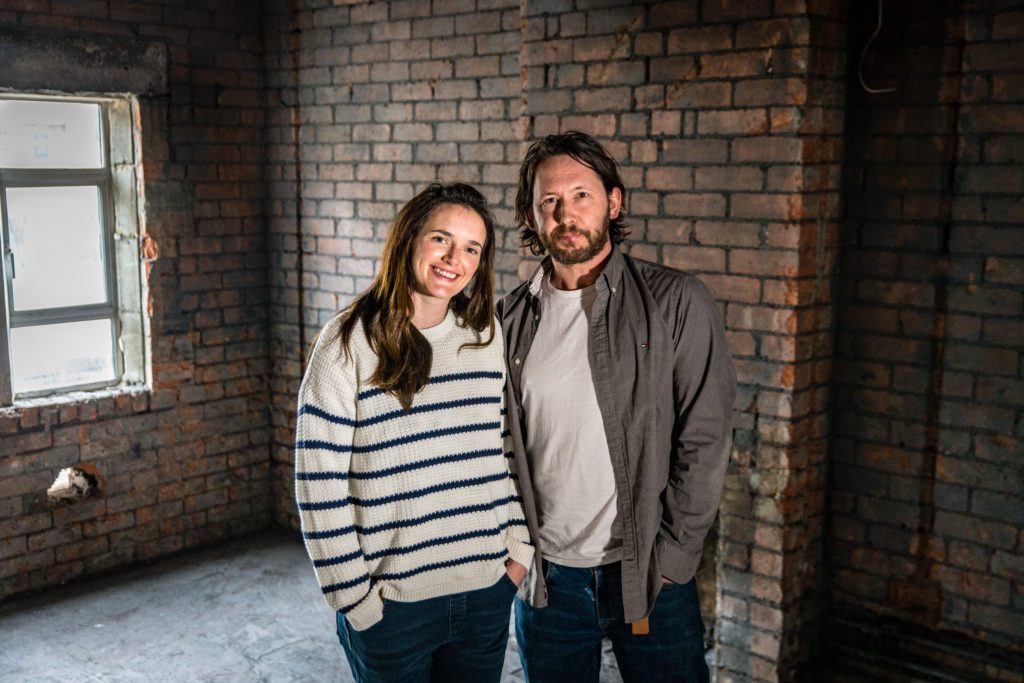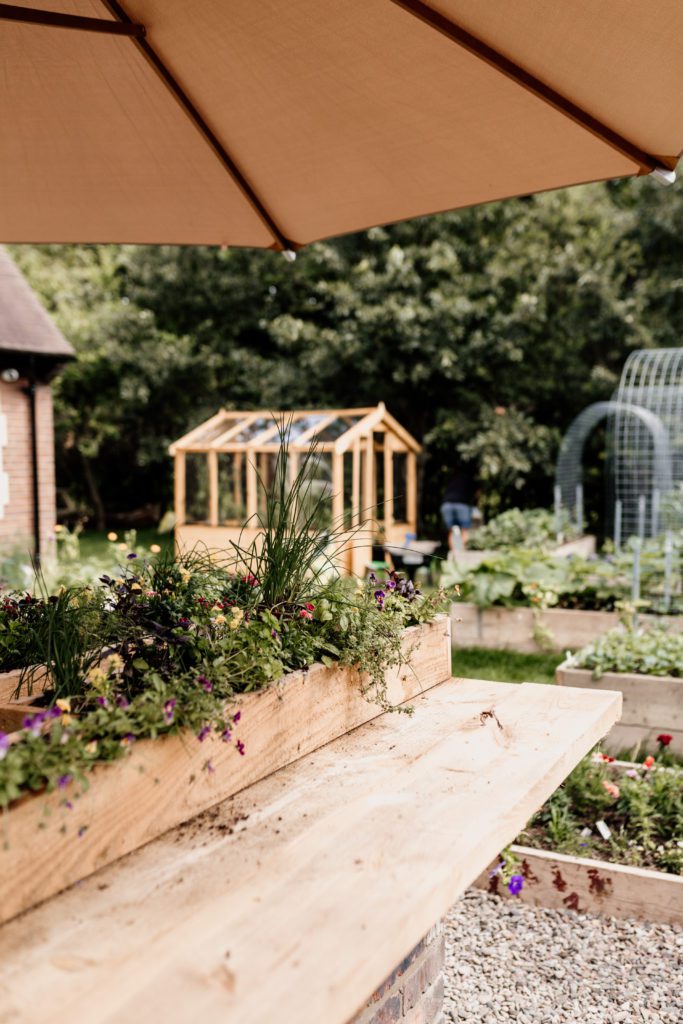A brand-new, sustainability-focused independent restaurant will open in Cardiff city centre at the beginning of next month, following a two-year process of fundraising, planning and renovation.
Kindle – formerly simply nicknamed ‘the warden’s house’ – is the latest venture from Phill and Deb Lewis, the entrepreneurial couple behind Dusty’s, an award-winning micro-chain of Neapolitan pizzerias in South Wales, and Nook, a cosy yet simply styled neighbourhood bistro, also in Cardiff.

Following a successful Kickstarter campaign which raised an initial £43,000 back in 2019, and with more than £350,000 of further investment from the founders (and a global pandemic in between) the first phase transformation of the run-down, former warden’s cottage in Sophia Gardens is now complete.
Kindle will officially open to the public on 2nd September, and online table bookings are now live at: kindle cardiff.co.uk.
What will be on the menu at Kindle?
Kindle will combine ‘fire food’ with natural wines in a vibrant, informal and unique city centre setting. The restaurant team will work closely with local farmers, gamekeepers and gardeners, to use ethical produce with an emphasis on provenance & sustainability.
Head chef Tom Powell, formerly heading up the kitchen of The Walnut Tree, will lead the Kindle kitchen team, creating seasonal menus which will also make the most of the on-site kitchen garden and greenhouse.
The Sustainable Approach
Bringing together a ground-breaking design and a passion for seasonal ingredient-led cooking, Kindle is the culmination of Phill & Deb’s long-held dream to open a truly sustainable restaurant in their home city, operating on circular economy principles.
Kindle co-owner Phill Lewis said, “Our vision was to create a restaurant which gives back more than it takes from the environment, and to challenge what it really means to create a sustainable hospitality business from scratch.”
To bring this to life, the couple have worked closely with Object Space Place (OSP), a pioneering interior architecture and design company with a focus on hospitality, who came recommended by the Sustainable Restaurant Association.

As a result, Kindle’s design has made the most of reusing and repurposing almost every element of the original building, and a high proportion of the materials are reclaimed, including all internal doors, and the flagstones, railways sleepers and scaffold boards used to create the garden and planting beds.
In addition:
- All timber is either reclaimed or FSC (Forest Stewardship Council) with a Chain of Custody Certificate to prove its origin.
- Materials with high recycled content have been used, such as wall tiles which are made from 90% recycled glass.
- Bricks removed from the external walls to create new door openings have been reused in the garden.
- Energy performance has been improved by adding new sheep wool insulation to the existing walls and roof. The sheep wool also has much lower embodied carbon than oil-based insulation.
- New taps, showers and low flush toilets are selected from the Water Technology List to ensure efficiency and reduce water use.
- Energy efficient LED lighting is controlled by movement and daylight sensors to ensure it is only on when needed.
- The landscaped garden and new planting beds have been improved with peat-free compost.
- Water based paints and wood stains have been chosen to reduce VOC’s (Volatile Organic Compounds), and a VOC monitor will be installed to make sure levels stay low.
- Where available, products with an EPD (Environmental Product Declaration) have been chosen. The EPD helps meaningfully compare the environmental performance of one product to another.
The design also incorporates two phases; the first, current iteration revolves around mainly outdoor dining, with the bar area, kitchen and toilets all based within the original building.
With future extensions and developments in mind, parts of the project have been ‘designed for disassembly’ meaning they can be easily taken apart and reused.
The second phase of the build will take place up to two years later and will involve a glass-fronted extension, reusing every element of the current build in the final iteration.
David Chenery from Object Space Place said “Kindle has been such an exciting project to work on as the whole team were keen to make the design and fit out as sustainable as possible.
This gave us the chance to really stretch our Restorative Design Framework, and to apply the Good Practice Measures of the SKA sustainability assessment method, which will be reviewed at the end of the build by sustainability consultant, Bioregional.
Wherever possible we have made decisions to reduce the carbon footprint and environmental impact of what we are doing, whilst still creating a beautiful restaurant experience. It has really been such a rewarding process.”
